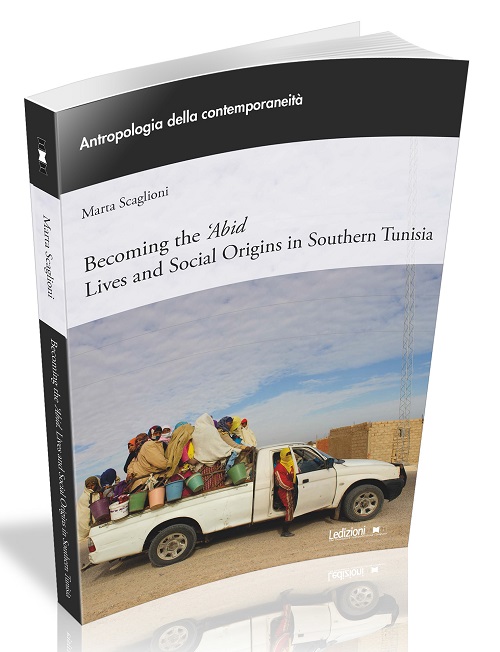In 2011, after the popular uprising overthrew former President Zine el-Abidine Ben Ali, in Tunisia several issues came to the fore: among them, racism targeting “black” individuals. Few black rights associations emerged, and their struggle culminated in the promulgation of a law punishing racist acts and words in October 2019. The step is historical, and stems from Tunisia’s foreseeing policy concerning human and civil rights. In 1846, Tunisia was the first country to abolish slavery and the slave trade in the Ottoman Empire and in the Middle Eastern world. Becoming the ‘Abid addresses the issue of the legacy of slavery in a southern Tunisian governorate, where racism towards “black” individuals is still a painful experience and takes the form of professional, educational, and marital discrimination. Referring to the concept of “structural inequality”, the book goes beyond the simplistic idea that race is only related to phenotype, taking distance from the Western racial concepts, and highlights how processes of racialization are contextual, processual, and changing constructions.
DATI BIBLIOGRAFICI
Autore: Marta Scaglioni
Editore: Ledizioni
Pubblicato nel: maggio 2020
Formato: brossura, 261 p. – ePub – PDF in Open Access
Collana: Antropologia della Contemporaneità
ISBN cartaceo: 9788855261975
ISBN ePub: 9788855261999
Prezzo cartaceo: 28€
Prezzo ePub: 12,99 €














Recensioni
Ancora non ci sono recensioni.